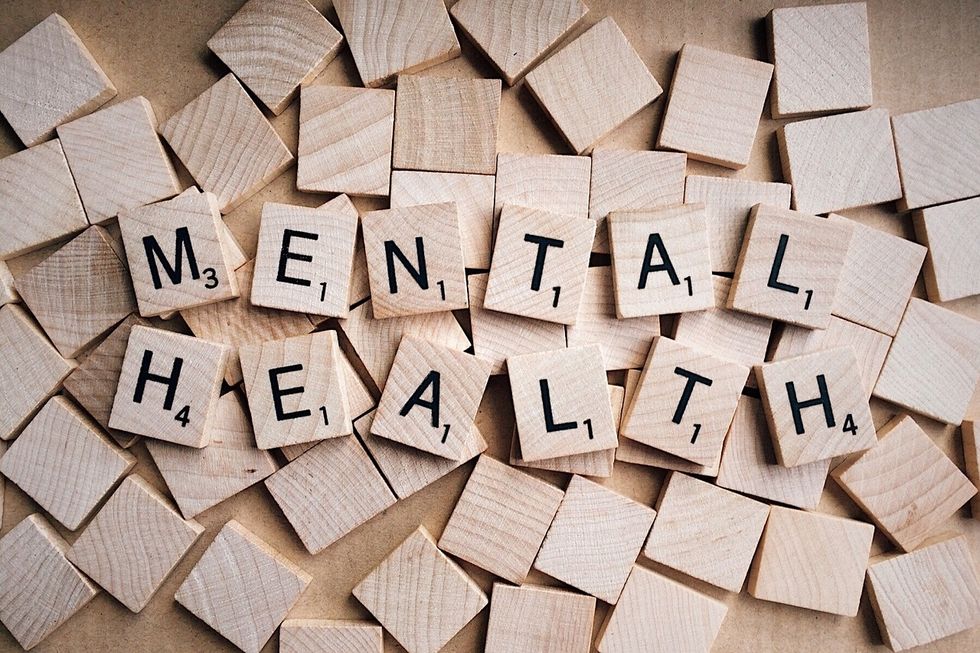I would love it if my university would utilize more of its resources to help gain a better understanding of mental health and how it impacts students. Mental health is something that the university does not take into account on a deep enough level. Many students know that they have mental health needs, but feel that they have no way of getting help or even just talking candidly to someone.
I currently work with a few different organizations on campus to help fix the current perceived view of people with mental health needs. I am currently involved in the Student Government Association's Presidential Cabinet and the Women of Diplomacy Leadership Program. Within the cabinet, we are working on diversity and understanding the depths to which it affects students mental health. With the Women of Diplomacy Leadership Program, we strive to create a place where young women can feel supported and can rely on others for support. Whether they don't feel safe in their space, they are putting themselves under too much pressure, or they are in need of counseling, there needs to be a place for those who need it.
We have been reviewing different aspects of the prominent communities on Seton Hall's campus. Through cooperation with different organizations, we have been able to create an open forum for students to talk about their mental health needs. Each forum that we have created is specific to different communities on campus, allowing students to feel safe and comfortable when discussing intimate concerns. These students are faced with not only judgment from their peers but also from there families, and Seton Hall does very little to alleviate that.
While we have counseling for students on campus (CAPS), many students won't go for fear of a perceived weakness from their friends. Unfortunately, CAPS is the only real resource students have for addressing their mental health. Currently, CAPS is only open during certain hours, they only have specific slots students can utilize, they will only see you for a certain number of sessions, and they are drastically understaffed. All of this leads to students feeling lost, and a bit helpless, when they come upon a mental health roadblock.
Many students also feel that the counselor will not be able to understand them. Each SHU student comes from a different background with very different ways of approaching mental health. While many students are involved in clubs and different orgs, mental health is not something that is discussed in the classroom or in these communities.
It is up to the students to fix this problem, the school can help, but students need to help each other. Most of us do not deeply connect with their professors; growing up in two vastly different worlds. But we feel a community with our peers.
The Presidential Cabinet has worked with the Black Student Union, Gen1, MAC, FLASH, BMS, the Latino Institute, MENAC, SASU, and Allies to create a dialogue regarding the stigma sounding mental health in each community. The mental health stigma, in most of these communities, is only intensified once in college. Many students face new surroundings, higher-level classes, a more rigorous schedule, and all while trying to live up to certain expectations. With the different organizations on campus, the SGA's Presidental Cabinet hopes to help students feel that they can communicate without fear of ridicule. By creating a space for all students, from every background, to discuss their struggles at university we can create a healthier place to not only have students survive but also thrive.
Having a space where students already feel safe in their environment is the perfect place for a raw conversation about the needs of students within the community. Many cultural organizations consider themselves to be very close-knit, but, when it comes to real needs or deeper emotions, they do not even go near the subject. Students should have a place where they can talk about their needs to someone that they already feel comfortable with, not someone they just met who they know they're only going to see six times.
I think that if we could have mental health as a topic of discussion in these clubs, we could help students with lower levels of need and be able to identify those with more pressing levels of need. The way that we rate our faculty could be a great way to make sure that clubs are addressing mental health. Having students rate their clubs on how well they address mental health and the ways they attempt to remedy it or give out additional resources, can dramatically improve student's wellbeing.
Once they know that someone in their community is there for them, and genuinely wants to help, they will be more open to discussing any needs they have and may even desire to seek a remedy for them. The more things get talked about, the more they get normalized; the more people see someone like them taking these difficult things head-on, the more likely they will be to overcome their needs.
Seton Hall does a great job of trying to help students feel safe and included, but they do not always do a great job when it comes to following through. The students need action, they need a plan, they really just need someone to care about them enough to actually make that change.








































